Can You Give Back to Back Doses of Ivermectin to a Goat
Disclosure: This post may contain affiliate links from which I will earn a commission.
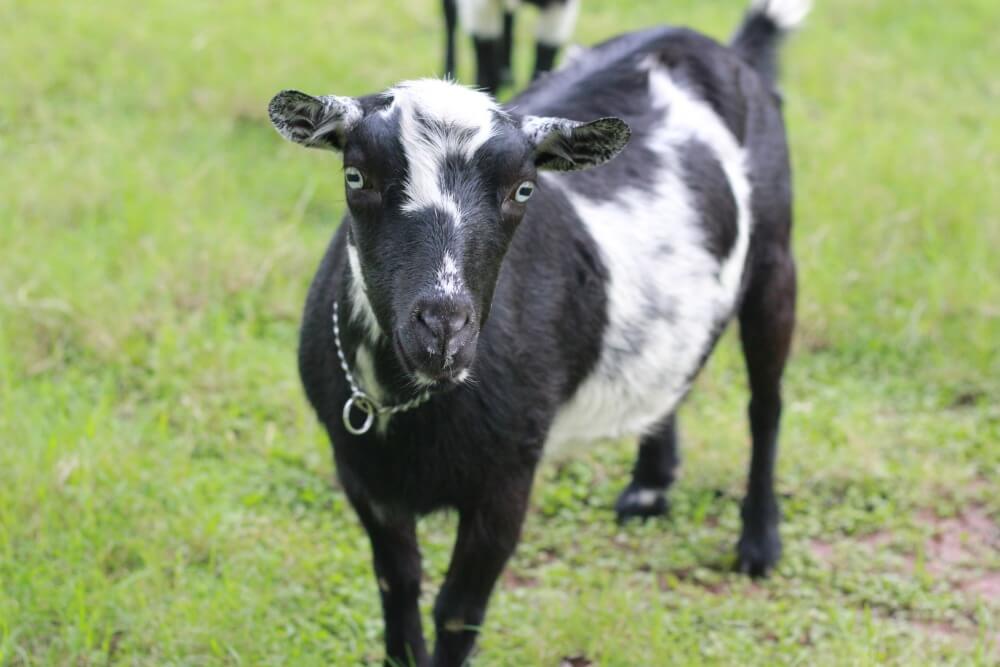
Goat diseases? Ew, gross!
I know. I shudder just thinking about it.
We've been really fortunate to have very few goat ailments here on the farm. Goats are actually really hardy animals and if given the right diet and environment, can live a long, healthy life.
What we don't want is a sickly goat.
That's why today I'm going to give ya'll a lesson on goat diseases, signs & symptoms, how to test from home, and hopefully, how to avoid them all together.
Goats are incredibly fun to raise, even if sometimes you have one that isn't too in love with you, as evidenced in the photo below.
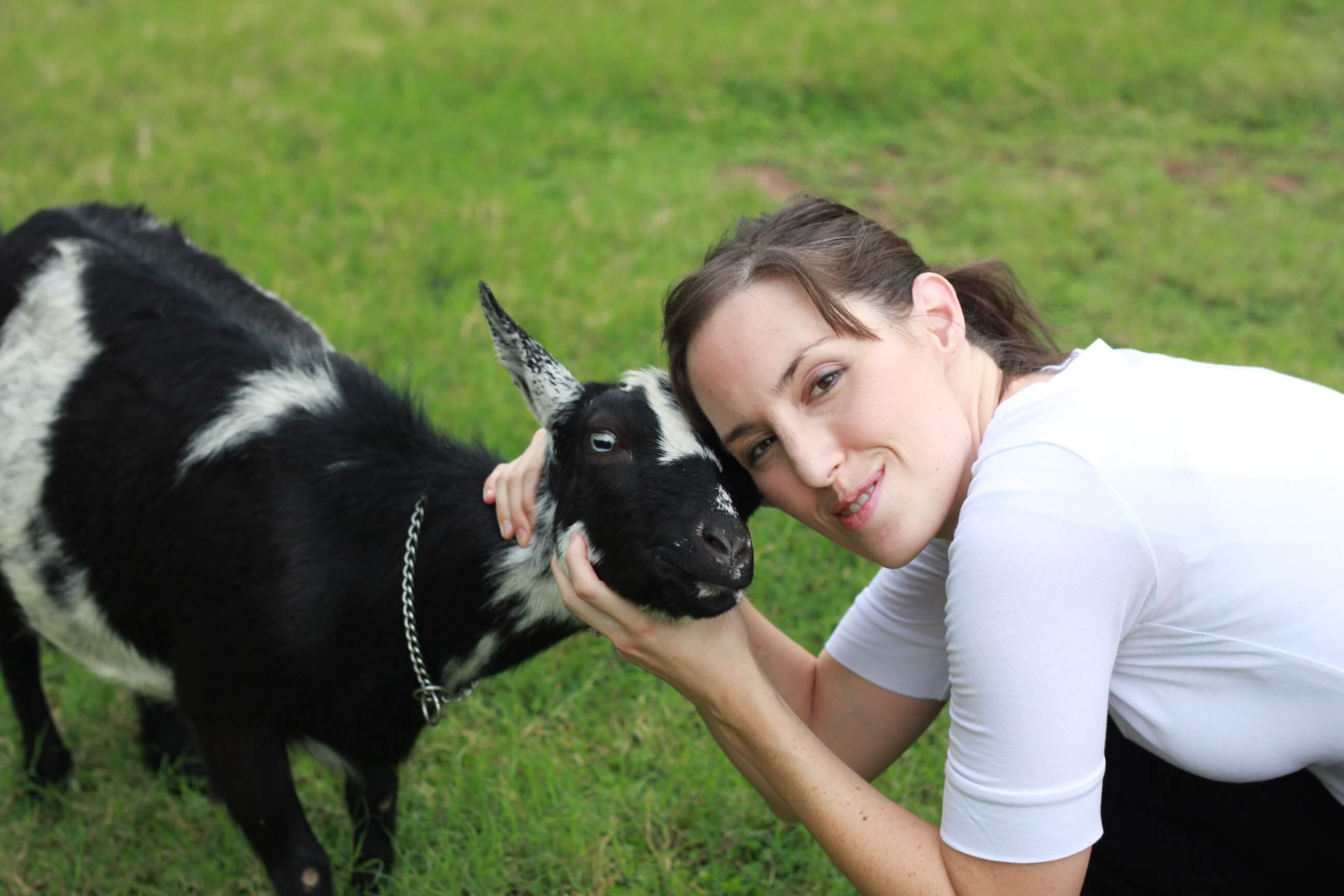
Sheep will always have a special place in my heart because they love me no matter what.
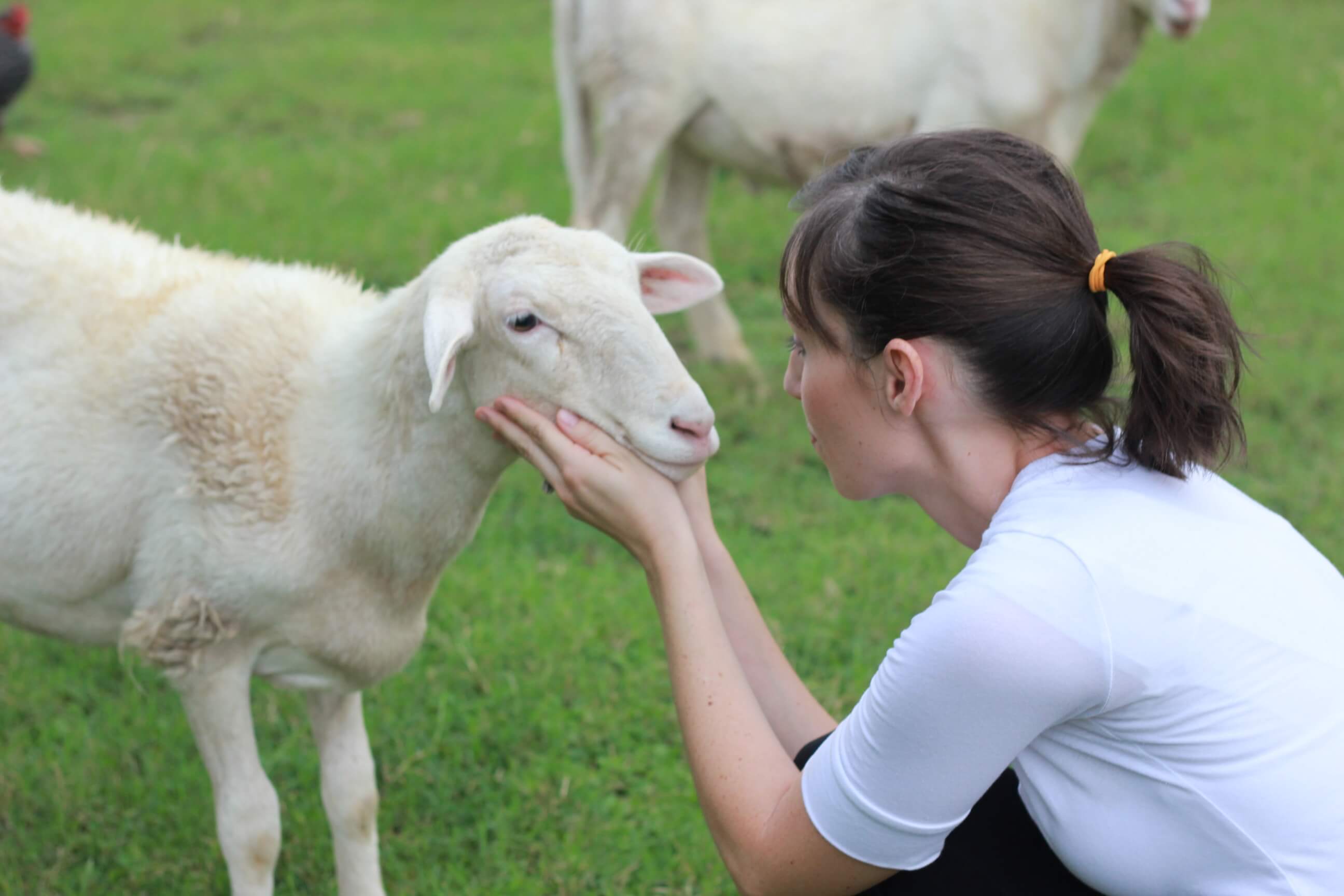 Common Goat Diseases
Common Goat Diseases
Before I start, I want to mention that although goat diseases should be taken seriously, this shouldn't deter you from owning and raising goats. We test our herd once a year, and then make sure not to introduce new goats to the group unless they've already been tested. We haven't had one case of a disease here on the farm and everybody's happy and healthy right now. We practice pasture rotation, holistic farming, and good sanitation practices and then we test once a year for our peace of mind.
Below I'm going to list the common goat diseases along with the natural treatment we'd choose if our goats ever contracted them. We aren't opposed to using antibiotics, but in many cases, there isn't any other treatment and in my experience, goats respond very well to herbal remedies!
For all our goat herbal needs, we use Kat's recommendations at Fir Meadows. She's extremely knowledgeable and helpful! I talked to her before publishing this post and she gave me advice on herbal remedies for the following diseases.
For all the diseases listed below, you should consider these herbal remedies:
- HerBiotic herb mix
- Better Daze herb mix
- MMune herb mix
Caprine Arthritis Encephalitis (CAE)
This is a virus that turns into an awful arthritis. It affects the joints and can make them really swollen and painful. Because it's hard to tell if a goat's in pain, sometimes your goat will have this without ever really showing symptoms. Others might wobble when standing. CAE can also develop into a more serious neurological condition, with your goat showing signs of paralysis of the neck or legs. CAE is contracted from mother goat to baby via milk, so when CAE shows up in a goat, it's a good idea to separate the babies right after birth and bottle feed. There isn't a vaccination for CAE currently available.
Is Caprine Arthritis Encephalitis (CAE) transmissible to humans? No.
Treatments forCaprine Arthritis Encephalitis (CAE): Natural treatments include separation from herd, and using herbal remedies like Lung Support Tincture or Extract, Udder Blast (mastitis), DCongest Salve (congested udders), and A-King Joint (knee inflammation, joint issues). There is currently no standard treatment other than to treat symptoms or put down your goat.
Caseous Lymphadenitis (CL)
This is a bacterial infection that can collect in the lymph nodes and spread to other organs. It can be contracted and spread by both goats & sheep. Your goat will become emaciated and seem to not be able to keep on weight. When this happens, you'll want to rule out CL or worms/lice, which can also be a cause of weight loss. They will also reduce in milk production. CL is contracted by oral pathways, and if you know goats, you know they are constantly licking, chewing, and sniffing out their environment. There is a vaccination for CL available but needs to be administered by a vet as the goat & sheep vaccinations are different.
Is Caseous Lymphadenitis (CL) transmissible to humans? Yes, but seldom or rarely happens.
Treatments for Caseous Lymphadenitis (CL) : Natural treatments include separation from herd, and using natural herbal remedies like HerBiotic Salve (at any abscess site).
Paratuberculosis (Johne's Disease)
Johne's disease can be contracted by ANY ruminant animal, including goats. This bacteria resides in the lining of the intestines and causes the lining to thicken so the animal isn't able to absorb nutrients. Symptoms of Johne's disease includes pasty or soft stools, depression, labored breathing, or shedding of hair/wool. Johne's disease can be transmitted by oral contraction or from mother to baby in utero or from milk.
Is Paratuberculosis (Johne's Disease) transmissible to humans?There is a risk that humans can contract Johne's disease, although the rates are extremely low. Still, caution is advised.
Treatments for Paratuberculosis (Johne's Disease) : There is currently no standard treatment other than herd separation, and practicing good sanitation practices such as keeping the stalls clean, especially during kidding. You can also use the natural remedy GI Soother
Brucellosis
Brucellosis is most often found in cattle, but can also be found in goats occasionally. Brucellosis usually is contracted by the male and he transmits it to the female during breeding. A common sign in males is swollen testicles. It most often causes abortion in the female around 4 months. This is why you need to be very careful if your goat aborts early because brucellosis can be contracted to humans from the human handling the afterbirth. Also, you can contract it from the milk, vaginal discharges, semen, and urine of goats. Brucellosis can also live on clothing for long periods, so it's best to "sun" the items to eliminate it. Other treatments include antibiotics, but because this has to be done on a long-term basis, I'd put down any animal that had brucellosis.
Is Brucellosis transmissible to humans? Yes. Humans can contract it by being exposed to a goat's birthing fluids or drinking contaminated milk. Read more about how brucellosis affects humans here.
Treatments for Brucellosis: Most recommendations are for a slaughter of the herd that is affected though there has been some success with strong antibiotic treatment. There are also some herbal remedies to try such as Heart Support Herb Mix, A-King Joint Support for inflammation, Fresh Start for liver support.
Q Fever (Coxiella)
Q Fever is a bacterial infection that occurs in many different species and can be contracted to humans. It can cause late-term abortions or sometimes you'll have weak kids when they are born. This is a major concern for humans because Q Fever can be a life-threatening illness for us. Humans are likely to contract it from handling newborn kids, so it's important to test for Q Fever each year before your doe gives birth.
Is Q Fever transmissible to humans?Yes. While some people don't show symptoms at all, many experience (within 2-3 weeks of exposure) high fevers, nausea, vomiting, diarrhea, & abdominal pain. Read more about how Q Fever affects humans here.
Treatments for Q Fever: There are some recommended practices you can implement on your farm so that you can avoid & control Q Fever. Also, be sure to try the following herbal remedies: (select based on organs affected) Fresh Start Herb Mix – liver support, Lung Support Tincture or Extract, A-King Joint Support (inflammation such as in the liver or heart), Mel-O – nervous system support.
Toxoplasmosis
Toxoplasmosis is another infection that can cause abortions, and it's also contracted to humans by touching newborn kids or any of the afterbirth. Toxoplasmosis is especially concerning for pregnant humans, as it can cause defects or abortion.
Is Toxoplasmosis transmissible to humans?Yes, and this is something you need to be cautious of especially if your goat aborts its fetus(es). You can read more about how toxoplasmosis affects humans here.
Treatments for Toxoplasmosis: At the present time, there isn't a standard treatment or vaccines for goats. Prevention includes keeping the feed away from cats, as cats can often transmit the disease to goats. A good natural herbal remedy is GI Soother.
Chagas (Trypanosoma cruzi)
Chagas is a tropical parasitic disease that is transmitted by little protozoans. There can be an initial sign of swelling around the affected area, but some goats and even humans can be asymptomatic. There are antiparasitic treatments that have a higher chance of cure if taken early. It used to be a concern in only tropical or sub-tropical climates, but it has recently popped up in the US, so I thought it would be worth mentioning here:)
Is Chagas (Trypanosoma cruzi) transmissible to humans?Yes, but more often it is transmitted to dogs. Here's some information on how chagas is transmitted to dogs as well as signs.
Treatments forChagas (Trypanosoma cruzi) : There is currently no treatment other than symptomatic treatment and herd separation. You can also try the herbal remedy DWorm A.
Scrapie
Scrapie is a fatal, neurological degenerative disease that primarily affects sheep, but goats can also become affected. It is transmitted through the herd after an affected sheep/goat gives birth and the birthing fluids are introduced to the herd in some way. Scrapie is really persistent, but doesn't always go through the entire herd. The animal will begin to tremor and lose control of its head, neck, then extremities. Scrapie can only be confirmed by the microscopic examination of brain tissue, so if your goat is affected, it's advised that she be put down, a test performed, then all other goats are watched closely for signs while a deep cleaning and sanitizing of the barn/stalls is done. Here is some more general info about Scrapie.
Is Scrapie transmissible to humans? No. (There is no evidence it has been transmitted)
Treatments for Scrapie: Natural herbal remedies include: There is no standard treatment, but it's recommended that the rest of the herd be treated with A-King Joint Support for inflammation, Better Brain Herb Mix, Mel – O Herb Mix for nervous system support.
How to test for goat diseases from home
We do all our own goat testing with a simple blood draw and shipment to a goat lab. It's actually easier than you think! Head over here to watch my video and instructions on how to draw blood from a goat.
You can have a perfectly happy & healthy herd of goats, as long as you make sure and take precautions. Testing for goat diseases will give you peace of mind so you can get back to enjoying and snuggling those adorable babies.
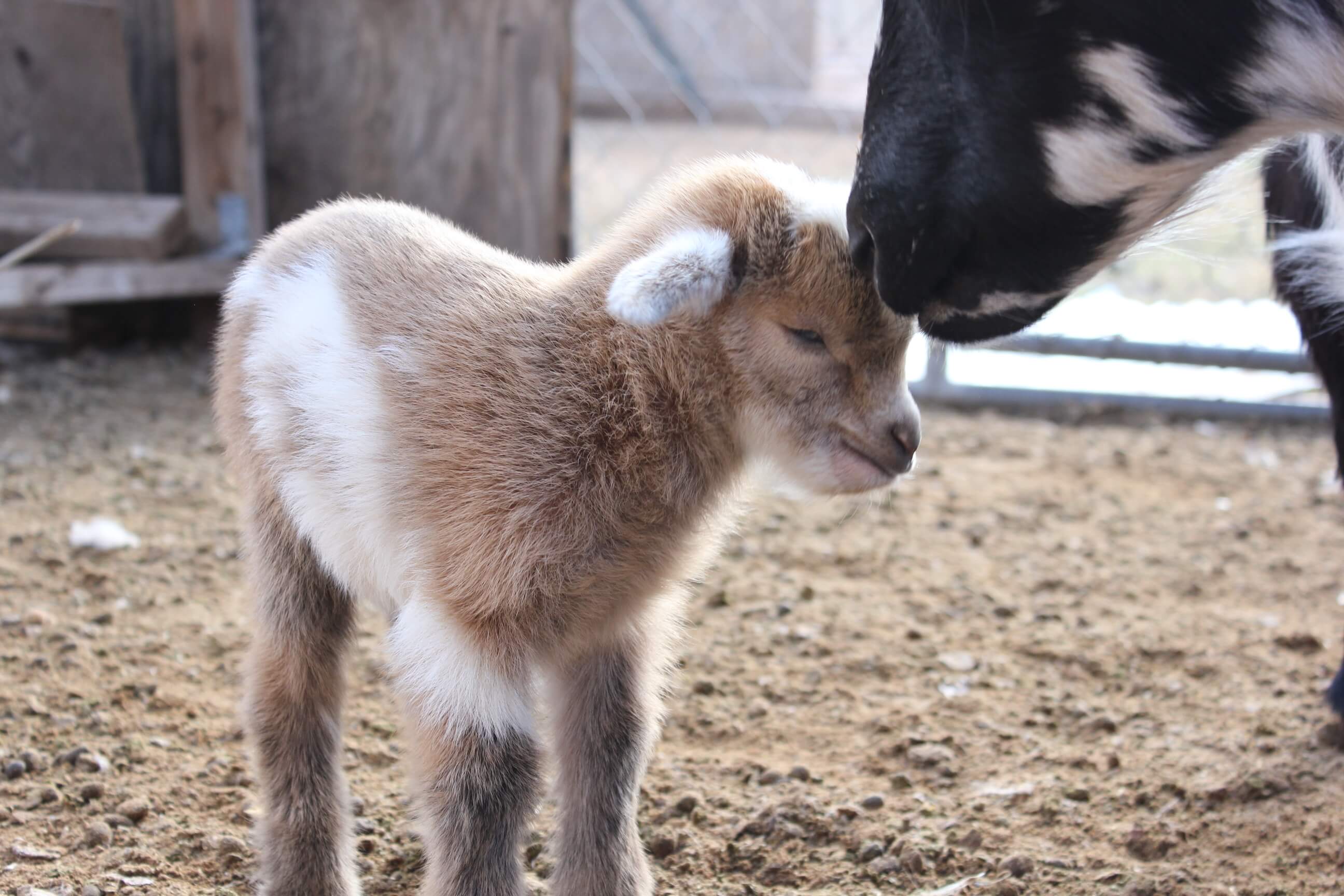
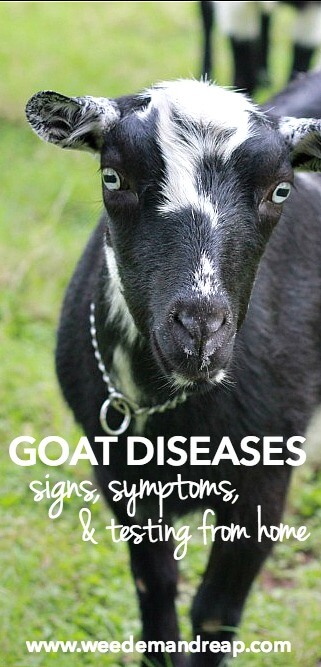
Can You Give Back to Back Doses of Ivermectin to a Goat
Source: https://www.weedemandreap.com/goat-diseases-signs-symptoms/
0 Response to "Can You Give Back to Back Doses of Ivermectin to a Goat"
Post a Comment